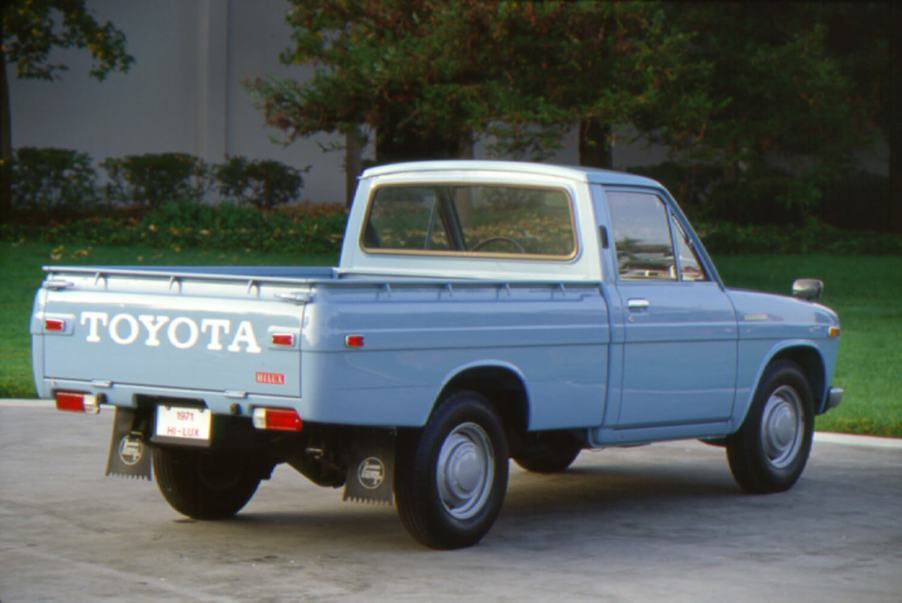
The Old ‘Chicken Tax’ on Trucks May Make Your Next EV More Affordable
The U.S. imposes a 25% tariff an all imported light-duty pickup trucks (originally in retaliation for a steep 1960s European tariff on U.S. chicken). Over the years, foreign manufacturers have found creative loopholes to this “Chicken Tax,” including building factories for light truck production in the U.S. This has, in turn, created a surplus of abandoned auto factories available for EV startups. At least two makes of electric vehicles come from old factories built to avoid the Chicken Tax: the Rivian R1T and Tesla’s current lineup.
What is the ‘Chicken Tax’ on trucks?
When European countries leveled a stiff import tariff on U.S. chicken (a major export at the time), it riled up President Johnson. He leveled a steep (25%) tariff on several European exports, including light-duty trucks. Though chicken import tariffs have come down, the U.S. penalty on imported trucks stands–and it’s still called the “Chicken Tax.”

A 25% tariff is pretty steep. Think about it this way: if Toyota were to build a $40k Tacoma in Japan, it would have to charge $50k for that truck in the U.S.–just so Uncle Sam could get his cut. Unsurprisingly, automakers have devised various creative ways to get around the Chicken Tax (Investopedia.com).
One thing Toyota immediately began doing was shipping “incomplete trucks” to the United States. Of course these were just chassis/cab trucks. Toyota had a California factory build and install pickup beds.
Mercedes-Benz actually built an “assembly” plant for its Sprinters in South Carolina. But to ensure Mercedes quality levels, the automaker built every Sprinter in Germany–then took it back apart! It sent “kits” to Charlotte, and the workers there reassembled the Sprinters.
When Ford wanted to build its Transit in Europe, it shipped every one to the U.S. as a passenger vehicle, complete with rear seats, so it didn’t have to pay the Chicken Tax. But if a Ford customer ordered a cargo version, Ford just took these seats out and tossed them.
Both Mitsubishi and Toyota established joint ventures with Detroit automakers and got around the tax by building their light trucks in factories in the U.S. In return, the American automakers got rebadged versions of Japanese-engineered cars and trucks.
The tale of Diamond-Star and New United Motor Manufacturing

In 1960, Toyota and General Motors established a joint venture called New United Motor Manufacturing. In 1984, NUMMI took over GM’s Fremont, California, assembly plant. Toyota flew factory workers and managers to Japan to study “The Toyota Way.” Then the joint venture began to build both Chevrolet and Toyota products–including the Corolla and Tacoma.
In 1985, Mitsubishi and Chrysler Corporation struck a similar bargain. The Diamond-Star joint venture opened a plant in Normal, Illinois. This 50/50 partnership built vehicles such as the Mitsubishi Eclipse, Mitsubishi Mirage, and Mighty Max pickup truck. It also built rebadged versions such as the Plymouth Laser/Eagle Talon, Dodge Colt, and the Ram D50.
Both of these Detroit automakers fell upon hard times (Chrysler in 1991 and GM in 2009) and backed out of their joint venture. Mitsubishi continued operating its Illinois plant for years. Toyota tried to offer GM a rebadged Prius, but when GM pulled out of California, Toyota closed its Fremont plant to focus on Canada, Kentucky, and Texas factories.
‘Chicken Tax’ plants were reborn as EV factories

In an interesting coincidence, both of the above factories–built in part to circumvent the old Chicken Tax on light trucks–has been reborn to house an EV startup.
As both Toyota and GM threatened to leave Fremont, Governor Arnold Schwarzenegger offered a package of tax incentives to them–or any automaker–who could keep the factory open. Even the United Autoworkers Union was willing to negotiate. It was Elon Musk who bought the factory to establish a home base for Tesla. The startup has built Model S, Model 3, Model X, and Model Y vehicles at the old NUMMI plant in Fremont.
The Rivian startup had a slower burn, designing and testing its R1T pickup truck for eight long years. When it finally was ready to begin production, it bought the Normal, Illinois, plant from Mitsubishi. In this old Diamond-Star factory, Rivian built the first electric pickup trucks for the public market, and still builds its R1T and R1S SUV today.
Next, learn why your next Tesla might be built in Mexico.






